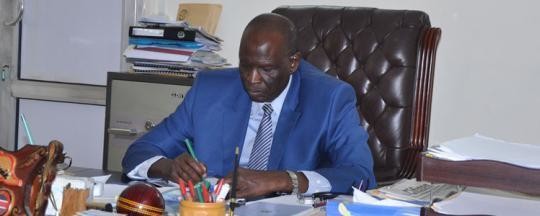South Sudan’s central bank has signed a memorandum of understanding with the finance ministry to coordinate their actions regarding handling of foreign exchange matters and building reserves, while forming a high-level economic task force including economic experts, politicians, and security organs to deal with the country’s economic crisis.
Central Bank governor Kornelio Koryom Mayiik said Friday that the task force includes members of the central bank, finance ministry, office of the presidency, parliament, and SPLM political party. Also sitting on the task force are representatives of the police, National Security Services, and military intelligence, along with the World Bank, International Monetary Fund, and economic advisers.
The moves, which put the Central Bank in close contact with appointed and elected politicians as well as security agencies, raises questions about the bank’s independence in making monetary decisions for the country.
Koryom said “collective efforts” are required to solve the country’s economic crisis because it is a “painful thorn” between government and citizens. He said the task force will work to come up with a coherent and harmonized strategy to avert further deterioration of the South Sudanese Pound against the dollar. The SSP has lost over 80% of its value in recent years.
The central bank governor provided no further details about the members of the task force. However, several officials at the bank and ministry of finance, as well as officials at the presidency, confirmed formation of the committee and said it is headed by minister of finance David Deng Athorbei.
They said the head of the internal security bureau Akol Koor Kuc is also a member. Other members include David Mayo, head of parliamentary committee on economic affairs, and Lual Acuek Deng, an economic adviser at the SPLM secretariat.
The team, according to officials with working knowledge of its actions, drafted the terms of the memorandum of understanding on how to manage the affairs of the finance ministry and the central bank.
According to the officials, the memorandum advocates coordinated fiscal and policy measures between the two institutions. Officials contend that the memorandum allows the Central Bank to receive oil revenues in dollars, while the Ministry of Finance will dispense SSP to government entities.
The goal is to allow the bank to start restocking itself with reserves which officials say have been depleted. The new arrangement also hopes to bolster interbank services and subsidize the foreign exchange rate to combat further devaluation of the SSP.




